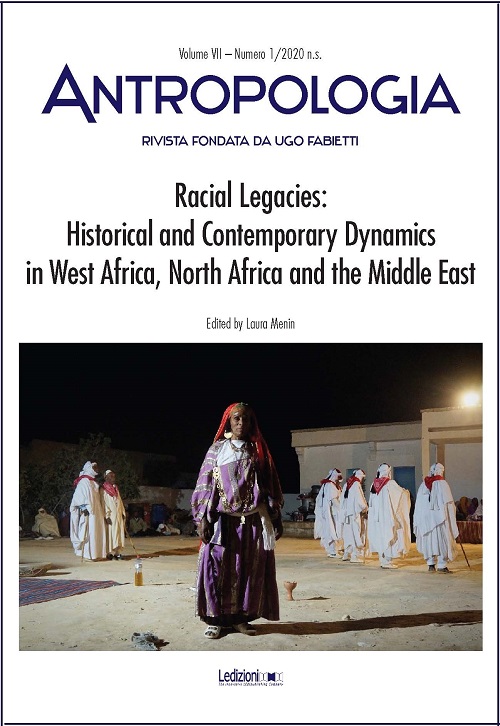Vocabularies of (In)Visibilities: (Re)Making the Afro-Turk Identity
DOI:
https://doi.org/10.14672/ada2020162445-66Keywords:
Afro-Turks, Ottoman slavery, Turkishness, blacknessAbstract
After the abolition of slavery towards the end of the Ottoman Empire, the majority of freed black slaves who remained in Anatolia were taken to state “guesthouses” in a number of cities throughout the Empire, the most important of which was in Izmir. Despite their longstanding presence, the descendants of these black slaves – today, citizens of the Republic of Turkey – have until recently remained invisible both in the official historiography and in academic scholarship of history and social science. It is only since the establishment of the Association of Afro-Turks in 2006 that the black population has gained public and media attention and a public discussion has finally begun on the legacies of slavery in Turkey. Drawing on in-depth interviews with members of the Afro-Turk community (2014-2016), I examine the key role of the foundation of the Afro-Turk Association in reshaping the ways in which they think of themselves, their shared identity and history.Downloads
Published
2020-05-08
Issue
Section
Articles
License
Authors maintain the copyright of their original work and grant the Journal the right to first publication, licensed after 36 months under a Creative Commons Licence – Attribution, which allows others to share the work by indicating the authorship and first publication in this journal.
Authors may agree to other non-exclusive licence agreements for the distribution of versions of their published work (for example in institutional archives or monographs) under the condition that they indicate that their work was first published in this journal.



